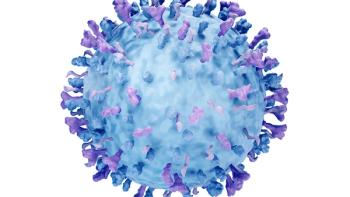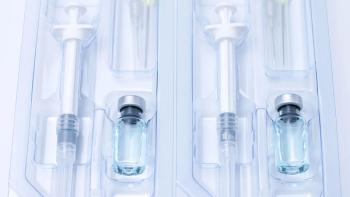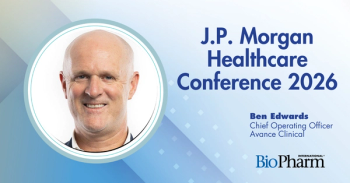
- BioPharm International, January 2022
- Volume 35
- Issue 1
Outsourcing’s Race Toward Novelty
Recent developments in the outsourcing industry include a focus on early development services, biosimilar production, and RNA technology.
Bio/pharma is a fast-paced industry that is continuously innovating via new technologies and techniques. The determination of what, if anything, should be outsourced throughout the development, manufacturing, and commercialization process is subject to various interlocking factors that necessitate thoughtful consideration. What an outsourcing company can specifically offer over in-house offerings or cheaper competitors is crucial. Consequently, many outsourcing companies seek to adopt new technologies that can set them apart from competitors.
Early development solutions
Small drug companies own a large portion of the overall drug candidate pipeline, but they typically require more assistance throughout the early process to successfully bring their drug to market. Inexperience in regulatory filings, trial design, and other early design elements can doom a drug before development.
According to Jeetendra Vaghjiani, senior director of clinical development and strategic marketing at Lonza, emerging biotech companies are reliant on CDMOs because of their development and manufacturing capacity, expertise, and flexibility. These can prove pivotal in successfully bringing candidates to clinical trial, placing increased importance on end-to-end CDMO services (1).
In a similar vein, companies that can provide drug discovery solutions for these same, inexperienced start-ups looking to advance their product are also attractive. As companies enter the bio/pharma industry, CDMOs that can demonstrate repeated success in finding promising candidates will continue to get hired.
Armin Spura, CEO of Crown Bioscience, stated that a major advantage of outsourcing drug discovery is access to specialized technology and expertise. Because of the high attrition rate associated with drug development, the better your preclinical program, the stronger the position you can establish in terms of program design and patient identification (2). If one can improve their preclinical process with a CDMO, they will ultimately improve their chances of approval.
Biosimilar production
In recent months, biosimilar production has seen a boon in development. Following the Biologics Price Competition and Innovation Act in 2010, FDA had approved just 30 biosimilars through 2020 (3). However, FDA announced the approval of the first interchangeable biosimilar insulin product, Mylan Pharmaceuticals’ Semgle (insulin glargine-yfgn), in July 2021.
Since then, FDA has approved multiple biosimilars, such as Boehringer Ingelheim’s Cyltezo (adalimumab-adbm) for Humira (4) and Samsung Bioepis’ Byooviz (ranibizumab-nuna) for Lucentis (5). This situation presents a unique opportunity for the commercial viability of interchangeable biosimilars. However, because of the relative scarcity of approvals over the past decade, companies looking to capitalize on this new market are likely to require specialized knowledge to get through the approvals process. Kelli Phillips, associate director of ImmunoChemistry at PPI Laboratories, noted that because contract research organizations routinely support biosimilar product submissions to regulatory agencies, they understand the current best practices expected by said agencies. (6).
mRNA Services
Messenger RNA (mRNA)-based therapies took center stage following the release of the Pfizer-BioNTech and Moderna COVID-19 vaccines. The development of these vaccines was built on over 50 years of foundational research into mRNA (7), but it is only after the release of mRNA vaccines that we have seen this rapid expansion in demand.
Moderna outsourced some production of its COVID-19 vaccine to CDMOs like Lonza, one of the world’s largest pharmaceutical services companies. Shortly thereafter, demonstrating one’s ability to provide some form of mRNA service became a hot commodity. In the past six months alone, large CDMOs, such as Samsung Biologics and Lonza, have advertised massive expansions of their mRNA manufacturing capabilities, which has been mimicked by various smaller companies scrambling to keep up (8, 9, 10).
The race to receive lucrative partnerships is on. While the industry is still in the infancy of this boom, as mRNA capabilities become a utility tool in drug development, CDMOs will attempt to present themselves as the best option for development and manufacturing.
References
1. C. Challener, “Trends in Outsourcing of Bioprocess Development” BioPharm International 34 (10) 2021.
2. F. Mirasol, “Biopharma Industry is Seeing Merit in Early Preclinical Strategies,” BioPharm International 34 (11) 36–37 (2021)._
3. J. Wechsler, “Biosimilars Move to Center Stage,” Pharmaceutical Technology, 45 (9) 2021.
4. PharmTech, “FDA Approves Cyltezo as Interchangeable Biosimilar with Humira.” pharmtech.com, Oct. 21, 2021.
5. PharmTech, “FDA Approves Biosimilar for Treatment of Eye Disease.” pharmtech.com, Sept. 17, 2021.
6. F. Mirasol, “Bioanalytical Studies Support Biosimilars Approval Pathway,” BioPharm International 34 (10) 42–43 (2021).
7. C. Beyrer, “The Long History of mRNA Vaccines,” publichealth.jhu.edu, Oct. 6, 2021.
8. PharmTech, “AGC Bio Boosts Manufacturing Capacity for pDNA and mRNA at Heidelberg Facility,” pharmtech.com, Sept. 14, 2021.
9. BioCina, “BioCina officially opens full-service CDMO in Adelaide, Australia, including mRNA and pDNA cGMP manufacturing,” biocina.com, Nov. 30, 2021.
10. Arcturus, “Arcturus Therapeutics Collaborates with Vingroup to Establish Manufacturing Facility in Vietnam for Arcturus’ Investigational mRNA Vaccines for COVID-19,” ir.arcturusrx.com, Aug. 2, 2021.
About the author
Grant Playter is the Assistant Editor at BioPharm International.
Article Details
BioPharm International
Vol. 35, No. 1
January 2022
Pages: 42-43
Citation
When referring to this article, please cite it as G. Playter, “Outsourcing's Race Toward Novelty” BioPharm International 35 (1) 42–43 (2022).
Articles in this issue
about 4 years ago
Industrious Pharmaceuticalsabout 4 years ago
The Long Path to Normalabout 4 years ago
What’s Next for COVID-19 Vaccines and Variants?about 4 years ago
Recent Trends in Data Analytics for Upstream Process Workflowsabout 4 years ago
Automating Upstream Processes Helps Sync Workflowsabout 4 years ago
Enhancing Resins Addresses Purification Concernsabout 4 years ago
Qualifying AI Algorithms in Pharmaceutical Manufacturingabout 4 years ago
Quality Still a Priorityabout 4 years ago
Finding Solutions to Cold Chain Supplyabout 4 years ago
Multiple Challenges to Multispecific AnalysisNewsletter
Stay at the forefront of biopharmaceutical innovation—subscribe to BioPharm International for expert insights on drug development, manufacturing, compliance, and more.




